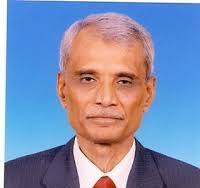Identification of Management and Technical Standards in Fitness Clubs: A Qualitative Inquiry
Keywords:
Fitness clubs, management standards, technical standards, operational efficiency, stakeholder managementAbstract
Objective: This study aims to explore the implementation and impact of management and technical standards within fitness clubs.
Methodology: Employing a qualitative research design, the study involved semi-structured interviews with 15 participants, including university professors in sports management, managers and experts from the licensing commission of fitness clubs, and standards specialists. The thematic analysis was used to interpret the data, focusing on the motivations for standard adoption, the processes of implementing these standards, and the perceived impacts on organizational performance and stakeholder engagement.
Findings: The study reveals that fitness clubs adopt management and technical standards primarily to improve operational efficiency, ensure compliance with regulations, and enhance service quality. Challenges in standardization include aligning internal processes with external requirements and managing stakeholder expectations. Successful standardization efforts lead to improved operational efficiency, better stakeholder management, and enhanced competitive advantage. The research also highlights the importance of voluntary environmental programs and ISO certifications in signaling commitment to quality and sustainability.
Conclusion: The adoption of management and technical standards in fitness clubs plays a crucial role in enhancing operational efficiency, regulatory compliance, and stakeholder satisfaction. Despite the challenges faced during implementation, the benefits of standardization are clear, suggesting that fitness clubs should continue to engage in these practices. Future research should aim to broaden the geographic and demographic scope of participants and incorporate quantitative measures to further validate the findings.
Downloads

Downloads
Additional Files
Published
Issue
Section
License
Copyright (c) 2024 Rahman Azizi (Author); Shahryar Kharazian (Corresponding Author); Seyed Mohammad Hoseini , Meysam Rezaei (Author)

This work is licensed under a Creative Commons Attribution-NonCommercial 4.0 International License.






















